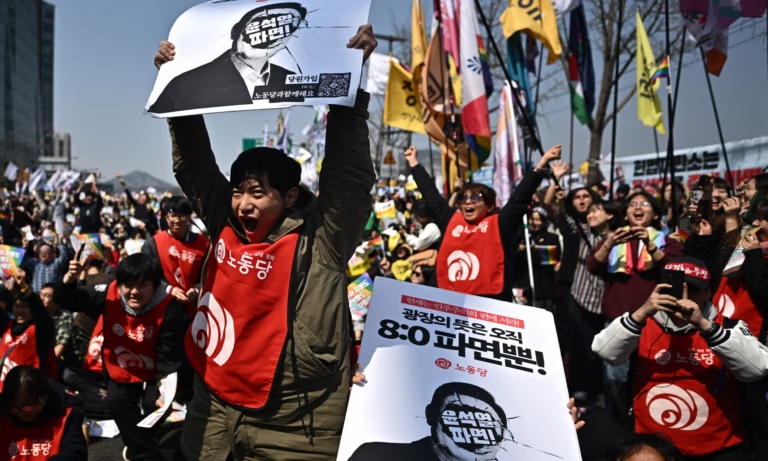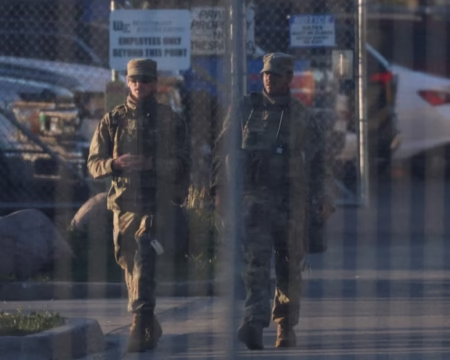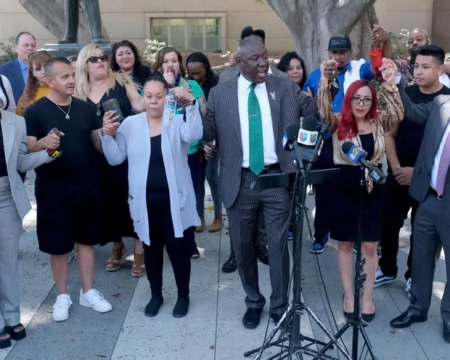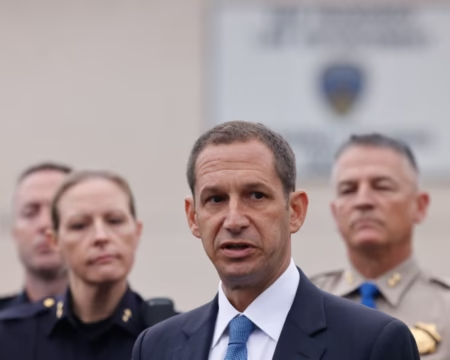South Korea will hold a snap presidential election on June 3, following the impeachment and removal of President Yoon Suk Yeol, acting President Han Duck-soo announced on Tuesday. Yoon was removed from office by the constitutional court for declaring martial law on December 3, a move seen as an attempt to block parliamentary procedures. In line with South Korean law, a new election must be held within 60 days when the presidency becomes vacant. The government has declared the election date a temporary public holiday to support voter turnout.
Snap Election Triggered by Martial Law Crisis
President Yoon’s downfall began in December when he declared martial law and deployed the military. His move was widely criticized as an effort to interfere with parliamentary activities, leading to his impeachment by the National Assembly and later removal by the constitutional court.
Yoon’s impeachment has triggered a political shake-up, with citizens reacting with a mix of relief and concern. While many South Koreans celebrated the decision, questions remain about the country’s political future.
Acting President Han to Oversee Transition
Han Duck-soo, who was serving as prime minister at the time, briefly faced impeachment as well. However, the court later overturned his suspension, allowing him to continue as the acting head of state until the election.
Han confirmed that the 21st presidential election will take place on June 3, and emphasized that ensuring a smooth transition of power is his top priority.
“June 3 will be a national holiday to allow every citizen the chance to cast their vote freely,” Han told reporters.
Opposition Leader Lee Jae-myung Leads Polls
The early polls suggest Lee Jae-myung, leader of the Democratic Party, is the front-runner. Lee narrowly lost to Yoon in the 2022 presidential race and remains a popular figure among liberal voters. However, he is currently facing multiple legal cases, including charges related to bribery and election law violations.
According to a Gallup Korea poll released on April 4, 34% of respondents favored Lee as the next president.
Other candidates mentioned in the poll include:
- Kim Moon-soo (Labour Minister, People Power Party): 9%
- Han Dong-hoon (ruling party leader): 5%
- Hong Joon-pyo (Mayor of Daegu): 4%
- Oh Se-hoon (Mayor of Seoul): 2%
Conservatives in Search of a Strong Candidate
With President Yoon removed, the People Power Party is scrambling to find a replacement candidate. Kim Moon-soo, who confirmed his candidacy on Tuesday, is currently leading the party’s internal race.
Political analysts believe the conservative camp may struggle to unite around a single figure due to internal divisions and a dented public image after Yoon’s ousting.
Economic and Global Implications
The political vacuum comes at a sensitive time for South Korea’s economy. The country is facing slower economic growth and pressure from U.S. tariffs under the Trump administration. The lack of stable leadership could impact Seoul’s ability to negotiate trade issues and maintain international partnerships.
Meanwhile, the public appears eager for a fresh start. Voter turnout is expected to be high, with many citizens hoping the new leadership will bring stability, transparency, and economic recovery.
What’s Next?
With less than two months to go, the election campaign is now in full swing. Analysts expect heated debates, especially on economic recovery, foreign policy, and judicial reforms. All candidates will face the challenge of restoring trust in government after one of the most controversial moments in South Korea’s modern political history.







